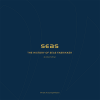Banished Voices
This study examines the literary complexities of the poetry which Ovid wrote in Tomis, his place of exile on the coast of the Black Sea after he was banished from Rome by the emperor Augustus in AD 8 because of the alleged salaciousness of the Ars Amatoria and a mysterious misdemeanour which is nowhere explained. Exile transforms Ovid into a melancholic poet of despair who claims that his creative faculties are in terminal decline. But research has exposed the ironic disjunction between many of the poet’s claims and the latent artistry which belies them. Through a series of close readings which offer an analytical contribution to the scholarly evaluation of the exile poetry, Dr Williams examines the nature and the extent of Ovidian irony in Tomis and demonstrates the complex literary designs which are consistently disguised under a veil of dissimulation.
• Detailed readings of controversial texts are offered • An appraisal is given to the long-standing controversy of whether Ovid was pro- or anti-Augustan • The exile poetry represents the last frontier in modern Ovidian studies
ContentsPreface; Introduction; 1. The ‘unreality’ of Ovid’s exile poetry; 2. Ovid’s pose of poetic decline; 3. Friendship and the theme of artistic motivation; 4. Ovid’s treatment of Augustus in Tristia 2; Conclusion; Bibliography; Index of modern authors; Index of passages cited; Index of words and themes.
- Forlag: Cambridge University Press
- Utgivelsesår: 1994
- Kategori: Teori
- Lagerstatus: Ikke på lagerVarsle meg når denne kommer på lager
- Antall sider: 244
- ISBN: 9780521451369
- Innbinding: Innbundet












